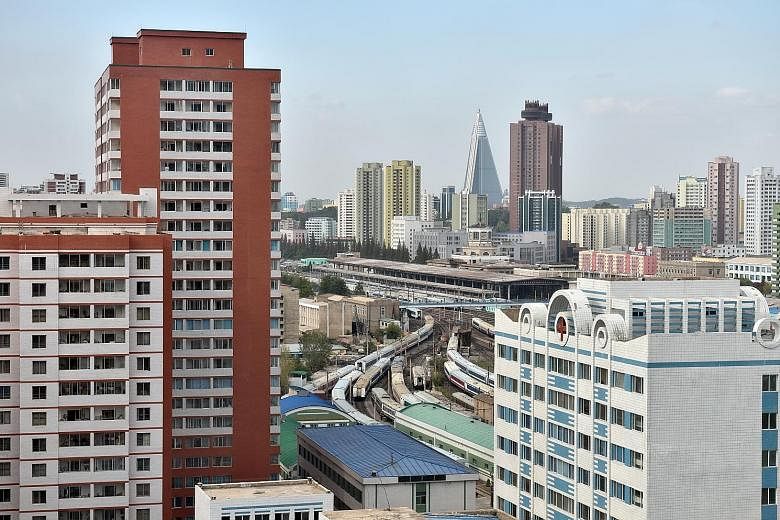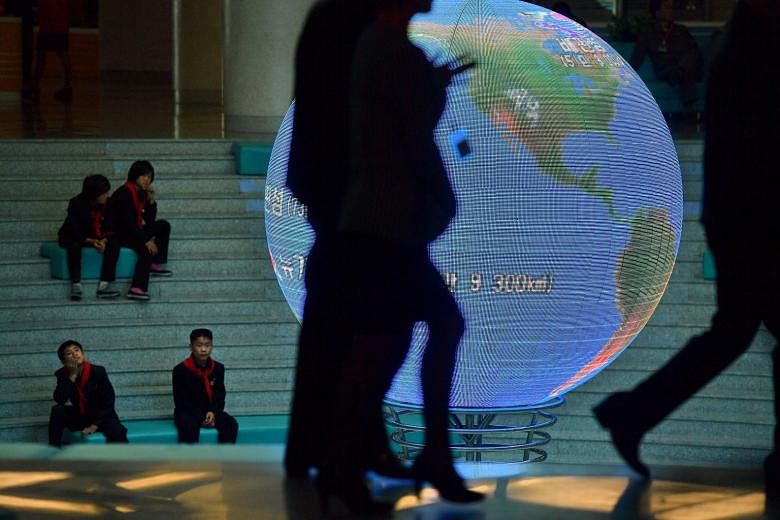Every now and then, a woman traffic warden in her smart uniform will turn to salute a passing car on Pyongyang's streets. She knows from the number plate - it includes the digits 07 27 - that it belongs to a party official.
The numbers signify July 27, the date in 1953 on which the three-year Korean War ended with the signing of an armistice agreement.North Koreans call it Victory Day.
Party officials have traditionally enjoyed the biggest perks in North Korea. Over the past two years, though, scientists are being serenaded as never before.
Crimped by the United Nations sanctions that are choking the country's supply of critical materials, and in a hurry to develop nuclear and missile technology, North Korean leader Kim Jong Un is turning to his scientists to find a way.
At Kim Il Sung University, 1,780 families of professors - mainly scientists - have just moved into spacious new homes given to them free of charge.
Another 1,050 scientists from Kim Chaek University of Technology have been favoured with an even greater prize - the largest apartments ever built in the country, spread across six 46-storey blocks, a short walk from their workplace. Each is 200 sq m or larger, and boasts 24-hour power supply.
The country's obsession with space-age weaponry is well documented. "We will not retreat an inch from building up our nuclear capabilities," says Mr Hwang Chol, a top Foreign Ministry official.
Now North Korea's fragile economy has also pinned its hope on scientists, says Professor Kim Sang Hak from Pyongyang's Economic Research Institute.
They are needed to conjure up substitutes for every mineral missing from this fenced-off land.
"One normally needs coke to produce steel, but we have no coke deposits," says Prof Kim. "Our scientists are helping us produce steel using anthracite." This is a hard coal containing relatively pure carbon.
The scientists are also making chemical fertilisers without crude oil, building windmills and, crucially, developing seeds to best suit farmers in a country prone to floods and famine.
United States think-tank Belfer Centre has pointed to a less benign aspect of this drive towards science. It said in a report this month that North Korea is developing biological weapons.
Whatever the reasons, science appears to be Pyongyang's top priority.
A new Sci Tech Park, built in the shape of an atom, hosts 3,000 computers and a central database of all scientific issues. It is linked to each of the 300 universities and colleges in the country.
It is also being used to attract children to science, with models on how satellites communicate, ships sail, magnets work and steel is produced. "Our entrance fee is less than the cost of an ice cream," says a spokesman for the park.
The well-publicised perks for scientists have touched a chord.
Mr Ham Pyong Gil, a spokesman for Kim Il Sung University, says that some science courses now attract five times as many applicants as there are places. Candidates have to take a written test. They need good grades to even qualify for the test.
This is creating Pyongyang's own version of the paper chase. "Many of my students are stressed," says Ms Kim Yong Sik, principal of Moranbong Middle School No. 1. "That is because the expectations of the parents are high, but the ability of the children is limited."
Rahul Pathak


